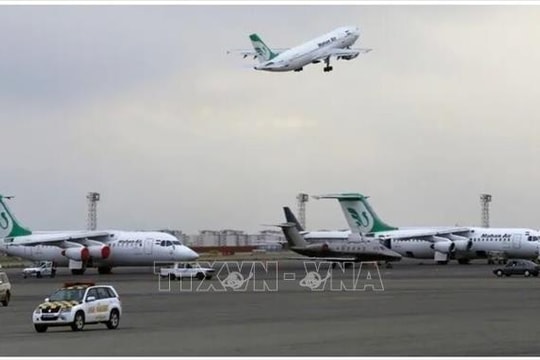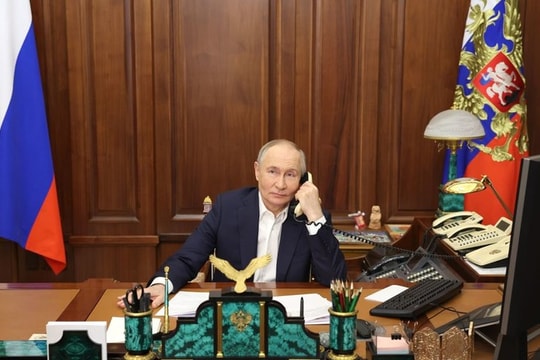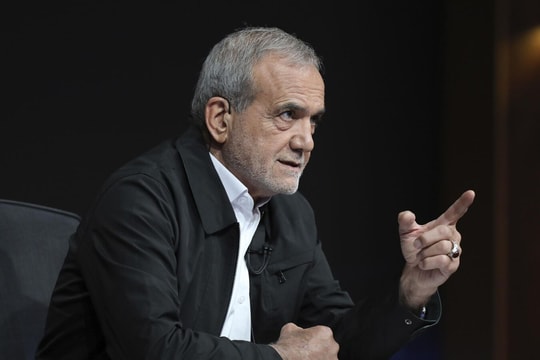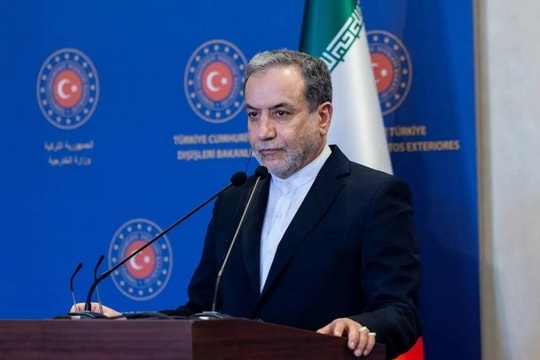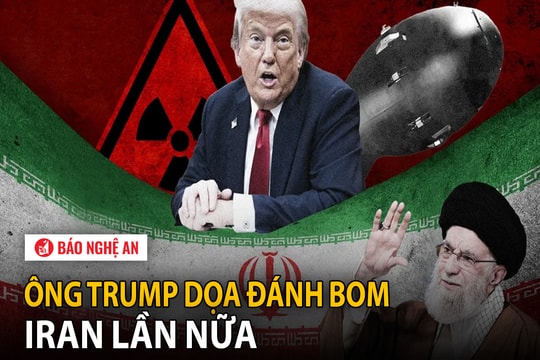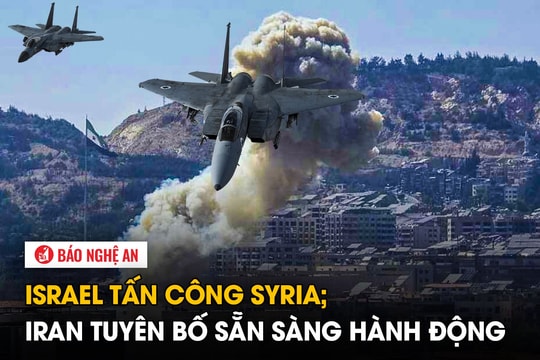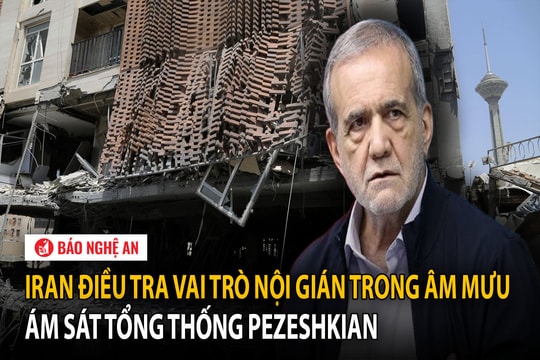Iran's nuclear dossier is about to have a change?
(Baonghean.vn) - The International Atomic Energy Agency (IAEA) has just reached an agreement with the Islamic Republic of Iran, which will allow its inspectors to continue to access to verify and monitor nuclear activities in the country for the next 3 months. This "good news" is expected to lay the foundation for Washington and Tehran to start nuclear negotiations.
Temporary solution
According to CNN, on February 21, IAEA Director General Rafael Grossi revealed that the agency and Tehran had reached a temporary “technical memorandum of understanding”. This is said to be a direct result of Mr. Grossi’s visit to Iran, in the context that the Islamic Republic had previously signaled plans to narrow the scope of cooperation with the global nuclear watchdog.
It should be noted that just last week, Iran announced that it wanted to stop implementing the IAEA's additional protocol, which would limit the number of facilities that inspectors can visit.nuclear fieldaccess to these sites for inspection and scrutiny, as well as when they can access them. Once this declaration is officially in effect, it will certainly be more difficult for experts to determine whether Tehran is seeking to develop nuclear weapons.
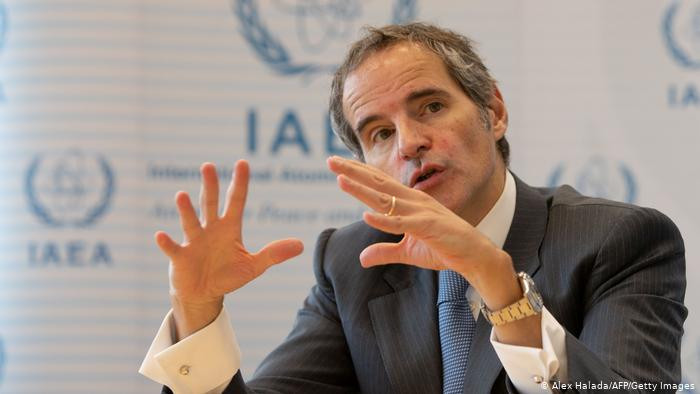 |
| IAEA chief Rafael Grossi. Photo: AFP |
Therefore, as Mr. Grossi analyzed, the interim agreement reached on Sunday will help reduce the impact of Iran's withdrawal from the additional protocol. This person added: "The content that we have agreed on is feasible, useful in narrowing the current gap, saving the situation."
According to the IAEA Director General, one of the important points in the recent bilateral agreement is that the number of international inspectors allowed to stay in Iran will remain the same, but their access to nuclear facilities will be more limited, and they will no longer be allowed to conduct last-minute “fast-track inspections” as before. However, he still emphasized that this is only a temporary solution: “This is not a replacement for what we had. This is an interim solution, allowing us to continue to assure the world about what is happening there, in the hope that we can come back with a fuller picture.”
Moving further away from the agreement
Since the resounding success of the historic Joint Comprehensive Plan of Action (JCPOA) agreement in 2015 between Iran and the P5+1 group, the IAEA's monitoring team has been given many inspection powers. As for Iran, although they have always affirmed that their nuclear program serves peaceful purposes, but in the face of skepticism from the international community, they agreed to sign the JCPOA agreement to mediate between the two sides, requiring Iran to limit its nuclear program and not develop nuclear weapons in exchange for sanctions relief.
But as public opinion witnessed, the "turning point" in this hot file must be mentioned when former US President Donald Trump declared that he considered the 2015 agreement to be too broad and generous with Tehran andwithdraw Washington from the bondin 2018. In response, Iran has gradually scaled back its commitments under the deal, notably including enriching uranium, a necessary material for making nuclear bombs, at levels above the agreed threshold.
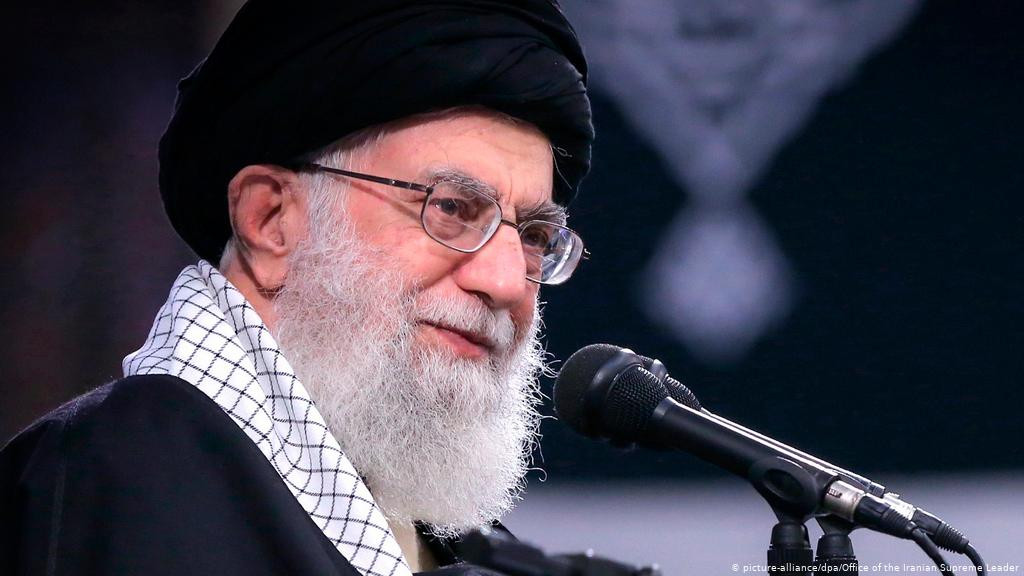 |
| Iran's Supreme Leader Khamenei said Tehran could increase uranium enrichment levels. Photo: DW |
Recently, in January, Iran announced that it would resume enriching uranium to 20%, far exceeding the 3.67% ceiling stipulated in the 2015 nuclear deal. But it did not stop there, on February 22, Iran's Supreme Leader Ayatollah Seyyed Ali Khamenei announced that the country could go even further, enriching uranium up to 60% if necessary to develop new technologies. On his personal Twitter page, Mr. Khamenei wrote: "Iran does not pursue nuclear weapons, but nuclear enrichment will not be limited to 20%. Iran will enrich uranium to the level necessary for the country."
In an additional statement posted on his website, Khamenei also said Tehran may need to develop technology such as nuclear propulsion systems to power ships. “Enrichment will increase according to the country’s needs, for example, for a nuclear propulsion plant or other facilities, we may need to increase the enrichment level to 60%,” he added. The figures, while not yet reaching the 90% enrichment level or higher, considered weapons-grade, are enough to make world powers nervous about Iran.
The deadlock is difficult to resolve.
The administration of US President Joe Biden recently announced that Washington is willing to hold talks with Tehran and other parties to the Iran nuclear deal, even before either side takes any specific action to save or return to compliance with the agreement.
Some opinions say that this is a quite positive signal compared to the previous deadlock situation, whenAmerica and Iranand firmly demanding that the other side return to compliance with the previous agreement. Earlier this month, Iranian Foreign Minister Javad Zarif said the US must take responsibility for choosing to leave the agreement first: “The US needs to show its willingness to return to the nuclear deal. The US is not currently participating in the nuclear deal and that is because it decided to withdraw, not to implement the available roadmaps within the scope of the nuclear deal.”
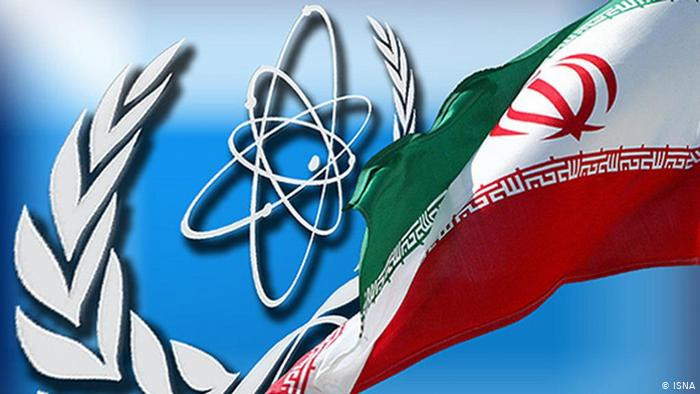 |
| Iran's interim agreement with the IAEA allows inspectors to continue working in Iran for the next three months. Photo: ISNA |
On the other side, US State Department officials have been cautious, emphasizing that their willingness to sit down with their counterparts and Iran is not a concession, nor even the beginning of nuclear talks. Instead, it is simply a diplomatic first step to consider how to begin discussing important issues. “Until we sit down and talk, nothing will happen,” a senior State Department official told the media. “It doesn’t mean that when we sit down and talk, we will be successful, but we know that if we don’t take that step, the situation will simply go from bad to worse.”
This line of thinking was also mentioned publicly by Jake Sullivan, Mr. Biden's national security adviser, last week, when he said that US officials were particularly concerned about Iran's decision to refuse to cooperate with the IAEA and that Iran must first stop straying from compliance with the agreement before there is any possibility of a diplomatic path.
“We are in the early stages. There will be work to be done, it will take tough, smart diplomacy, and ultimately Iran will need to decide that they are willing to take the steps required to assure and demonstrate to the world that their nuclear program is for peaceful purposes only,” Sullivan said./.

